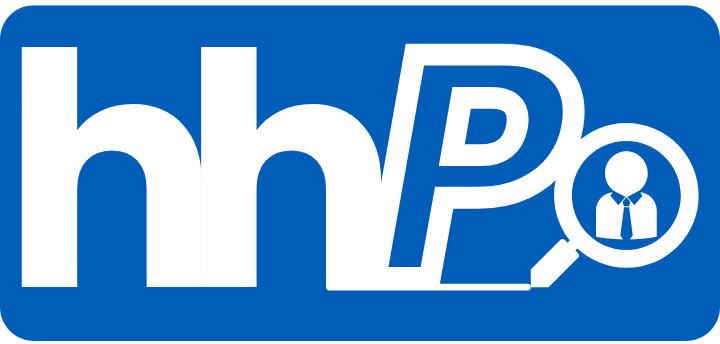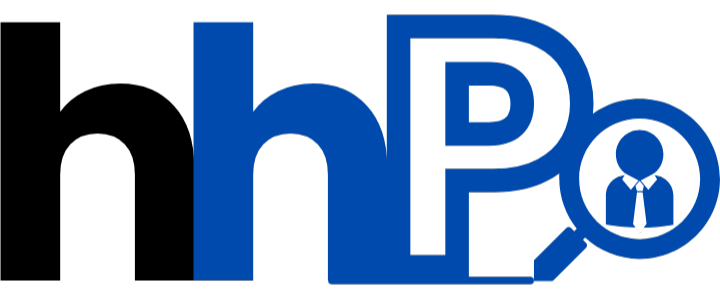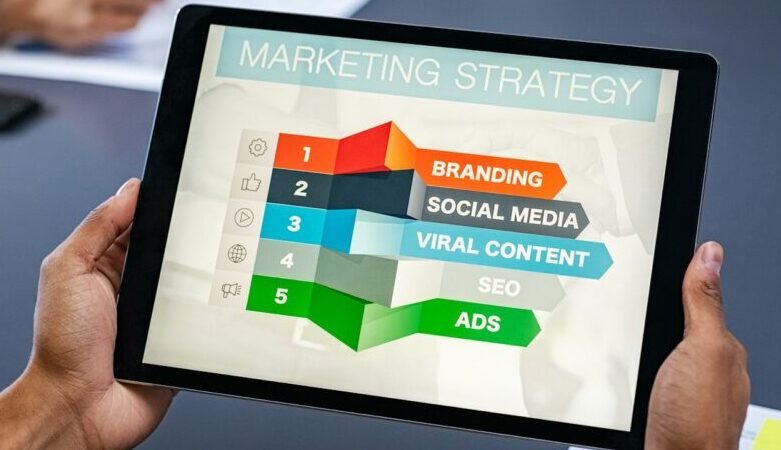Digital Marketing Interview Questions and Answers
Last Updated: 15 Nov, 2024
Introduction
Securing a job interview for a digital marketing role is a crucial step toward achieving the position you desire. An interview provides an opportunity to leave a positive impression on your potential employer and position yourself as a leading candidate. To prepare effectively, consider practicing responses to both general questions and more specific inquiries about your digital marketing experience and goals.
In this article, we explore 30 common digital marketing interview questions and offer sample answers to help you practice.
General Interview Questions
These general questions help the hiring team understand you better and gauge your interest in the position:
-
Can you tell us about yourself?
Answer: “I am a digital marketing professional with over five years of experience in developing and executing marketing strategies for various industries. I have a strong background in social media marketing, content creation, and data analysis, which allows me to create effective campaigns that drive engagement and conversions. I am passionate about staying up-to-date with the latest digital marketing trends and continuously improving my skills.”
-
What motivates you to do your best?
Answer: “I am motivated by the challenge of solving complex problems and the opportunity to make a tangible impact on a company’s success. Seeing the results of a well-executed marketing campaign and knowing that my efforts contributed to the growth and success of the business is incredibly rewarding.”
-
What is your biggest accomplishment?
Answer: “My biggest accomplishment was leading a digital marketing campaign that increased our company’s online sales by 30% within six months. This involved a comprehensive strategy that included SEO optimization, targeted social media ads, and engaging content marketing.”
-
What are your biggest strengths?
Answer: “My biggest strengths are my analytical skills and creativity. I am able to analyze data to identify trends and insights, which helps me develop innovative marketing strategies that resonate with the target audience.”
-
What are your biggest weaknesses?
Answer: “One area I am working to improve is my public speaking skills. While I am comfortable presenting to small groups, I am actively seeking opportunities to practice and enhance my confidence in larger settings.”
-
What interests you most about this position?
Answer: “I am particularly excited about the opportunity to work with a dynamic team and contribute to innovative marketing campaigns. I am also drawn to the company’s commitment to sustainability and its focus on using digital marketing to promote positive change.”
-
Why are you planning to leave your current job?
Answer: “I am looking for new challenges and opportunities to grow professionally. While I have enjoyed my time at my current company, I am eager to take on a role that allows me to further develop my skills and contribute to a forward-thinking organization.”
-
Why do you want to work for our organization?
Answer: “I admire your company’s innovative approach to digital marketing and its commitment to delivering exceptional value to customers. I am impressed by your recent campaigns and believe that my skills and experience align well with your goals.”
-
What makes you a good candidate for this position?
Answer: “I have a proven track record of developing successful digital marketing strategies and a deep understanding of the latest industry trends. My ability to analyze data and create engaging content makes me a strong fit for this role.”
-
Where do you envision yourself in five years?
Answer: “In five years, I see myself in a leadership role within digital marketing, where I can mentor and guide a team to achieve outstanding results. I am committed to continuous learning and hope to contribute to the growth and success of the organization.”
Interview Questions About Experience and Background in Digital Marketing
These industry-specific questions help the hiring team assess your qualifications and determine if your objectives align with those of the organization:
-
What digital marketing platforms and software do you use?
Answer: “I am proficient in using platforms such as Google Analytics, Google Ads, Facebook Ads Manager, and HubSpot for marketing automation. I also use tools like SEMrush and Moz for SEO analysis and Hootsuite for social media management.”
-
What do you like most about digital marketing?
Answer: “I love the dynamic nature of digital marketing and the constant evolution of strategies and technologies. It allows me to be creative and innovative while using data-driven insights to achieve measurable results.”
-
What do you like least about digital marketing?
Answer: “One challenge in digital marketing is keeping up with the rapid changes in algorithms and platforms. However, I see this as an opportunity to continuously learn and adapt, which ultimately strengthens my skills.”
-
What is your digital marketing philosophy?
Answer: “My digital marketing philosophy is centered around understanding the customer journey and creating personalized experiences that resonate with the audience. I believe in using data to inform decisions and continuously optimizing campaigns for better performance.”
-
Can you describe your greatest success in digital marketing?
Answer: “My greatest success was launching a multi-channel campaign that increased brand awareness by 40% and generated a 25% increase in sales. This involved a combination of social media, email marketing, and influencer partnerships.”
-
Can you discuss your worst digital marketing failure? How did you resolve it, and what did you learn?
Answer: “One of my campaigns did not perform as expected due to a misalignment with the target audience. I quickly analyzed the data, identified the issue, and adjusted the messaging and targeting. This taught me the importance of thorough audience research and flexibility in strategy.”
-
How do you motivate your digital marketing team to do their best?
Answer: “I motivate my team by setting clear goals, providing regular feedback, and recognizing their achievements. I also encourage open communication and collaboration, which fosters a positive and productive work environment.”
-
What do you think is the biggest challenge in digital marketing, and how are you addressing it?
Answer: “The biggest challenge is staying ahead of the competition in a rapidly changing landscape. I address this by continuously learning, experimenting with new strategies, and leveraging data to make informed decisions.”
-
What do you think is the next major trend in digital marketing?
Answer: “I believe the next major trend is the increased use of artificial intelligence and machine learning to personalize marketing efforts and improve customer experiences. These technologies will enable more precise targeting and automation.”
-
What are the most important qualities for a digital marketer?
Answer: “The most important qualities are adaptability, creativity, analytical skills, and a strong understanding of consumer behavior. A successful digital marketer must be able to quickly adapt to changes and continuously seek ways to improve campaigns.”
In-Depth Digital Marketing Interview Questions
These in-depth questions allow the hiring team to understand the full extent of your skills and evaluate how you would address common problems at work:
-
What are the key areas where you can use keywords to optimize your site ranking?
Answer: “Key areas for keyword optimization include the website’s title tags, meta descriptions, headers, content, and image alt text. Additionally, using keywords in URLs and internal links can further enhance site ranking.”
-
Do you think inbound or outbound marketing is more effective?
Answer: “Both inbound and outbound marketing have their place, but I find inbound marketing to be more effective in building long-term relationships with customers. It focuses on providing value and engaging with the audience, which leads to higher trust and loyalty.”
-
Explain an effective sales funnel you built.
Answer: “I built a sales funnel that started with targeted social media ads to drive traffic to a landing page offering a free resource. This captured leads, which were then nurtured through email marketing with personalized content, ultimately leading to a sales conversion.”
-
Do you have experience with marketing automation?
Answer: “Yes, I have experience using marketing automation tools like HubSpot and Marketo to streamline processes, segment audiences, and deliver personalized content at scale. Automation has significantly improved efficiency and campaign effectiveness.”
-
Can you discuss how you approach search engine optimization?
Answer: “My approach to SEO involves thorough keyword research, optimizing on-page elements, creating high-quality content, and building authoritative backlinks. I also focus on improving site speed and mobile-friendliness to enhance user experience.”
-
Tell us about your experience with creating digital marketing budgets.
Answer: “I have experience creating digital marketing budgets by analyzing past performance data, setting clear objectives, and allocating resources to the most effective channels. I regularly review and adjust the budget to ensure optimal ROI.”
-
Explain how you know a campaign is not successful.
Answer: “I monitor key performance indicators such as conversion rates, click-through rates, and engagement metrics. If these metrics fall short of the set goals, I analyze the data to identify issues and make necessary adjustments to improve performance.”
-
How do you address negative feedback regarding your company or client?
Answer: “I address negative feedback by responding promptly and professionally, acknowledging the issue, and offering a solution. I view feedback as an opportunity to improve and demonstrate the company’s commitment to customer satisfaction.”
-
Do you have any experience with collaborative digital marketing campaigns?
Answer: “Yes, I have collaborated with cross-functional teams and external partners to execute successful campaigns. Clear communication, defined roles, and shared goals are essential for effective collaboration.”
-
Discuss a time when your team did not agree with you.
Answer: “During a campaign planning session, my team had differing opinions on the strategy. I facilitated an open discussion, listened to their perspectives, and incorporated their feedback into the final plan. This collaborative approach led to a successful campaign and strengthened team cohesion.”
Digital Marketing Interview Example Answers
-
What digital marketing platforms and software are you familiar with?
An interviewer might ask this question to learn more about your technical skills and understand how much training you might need. Try being as specific as possible in your answer, listing the programs you use and your level of knowledge or fluency.
Example: “I am fluent in programs for social media, content marketing, and paid search. For social media, I use software like Agorapulse and Hootsuite for scheduling posts, engaging with followers, and developing monthly reports. For content marketing, I use Ahrefs for keyword research and WordPress for content management and publishing. I am also certified in paid search platforms like Facebook and Google Ads.”
-
Do you think inbound or outbound marketing is more effective?
Interviewers often ask this question to determine how much you know about digital marketing and its various components. You can convey your understanding of the industry by briefly discussing key aspects of both types of marketing and the importance of applying both.
Example: “In my experience, inbound and outbound marketing are essential complements of each other. Companies need inbound strategies like social media and blog content to interest customers on their terms, and they need outbound strategies like email marketing and paid search ads to attract clients more directly. Together, these two aspects can form a well-rounded digital marketing strategy.”
-
Can you describe one of your most successful campaigns?
An interviewer might ask this question to learn how you define success and to understand how much you have accomplished. Try outlining the campaign, its goals, its results, and your role when you respond.
Example: “I led my most successful campaign earlier this year when I worked with a client that required a complete marketing funnel to sell a new product. I worked with the client to build each stage of the funnel, recruited an experienced team to create each aspect, and managed every part of the project. In the end, we exceeded the revenue goal by 150%, which caused the client to hire my company for its next digital marketing projects.”
-
How do you know when a campaign is not successful?
Interviewers often ask this question to find out how you respond to and recover from failure. You can start by mentioning your role, your expectations, and the results, but you should also discuss how you responded and what you learned.
Example: “My least successful campaign happened last year when I worked with a client on a social media campaign centered on the holiday season. The campaign achieved only 50% of its brand awareness goal, which I attributed to the budget being too small and the goals being too high. While leading this project, I learned how to be more realistic when setting goals and proactive when attempting to fix campaigns that are not performing as expected.”
-
What is the most serious challenge for digital marketers today?
The hiring team may bring up this question to understand how you view and prepare for challenges. To answer, mention a major problem affecting the industry, and explain what you think is the ideal strategy for addressing it.
Example: “In my opinion, the biggest challenge for digital marketers is generating great results in an increasingly crowded marketplace. To continue to be competitive in the market, I think digital marketers need to dedicate at least 15% of their work time to monitoring new trends and experimenting with new techniques. By tracking new developments and trying innovative methods, the best digital marketers can succeed even as the digital marketing landscape changes quickly.”
-
Do you have experience with collaborative digital marketing campaigns?
This question helps interviewers learn how you work with teams and manage complex projects. When you answer, explain your role, and discuss how you approach teamwork and collaborating with other companies or departments.
Example: “Yes, I have worked on at least a dozen collaborations with other companies and led two campaigns with other departments. In my experience, the most important part of a collaborative digital campaign is agreeing on strategy, roles, and objectives during the first meeting. Establishing metrics and timelines is also essential so that everyone involved understands how to meet the goal.”
-
Can you discuss a time when your team did not agree with you and explain how you addressed the issue?
An interviewer might ask this question to assess how you handle conflict and demonstrate leadership. Try outlining the situation before explaining how you responded to the issue while leading your team. Briefly mention what you learned from handling a challenging situation.
Example: “When I led a recent marketing automation campaign, my team disagreed with my strategy. I asked each person to explain their concerns, and as a team, we discussed the pros and cons. Ultimately, we modified my strategy to address the team’s concerns and carried out a successful campaign, which helped me learn how valuable respect is to improving teamwork.”
-
What makes you a good candidate for this position?
Hiring managers often ask this question to find out more about your qualifications, motivations, and values. You can begin by reiterating your prior experience and key qualifications, before highlighting aspects such as values and goals you share with the organization.
Example: “I have a bachelor’s degree in marketing, and I have five years of experience managing social media accounts and running paid search advertising campaigns. I have led digital marketing teams for three years, and my leadership skills have contributed to a 20% increase in revenue for my current organization. I am confident that my skills, experience, and ambition would be a benefit to your organization, especially given your goal to grow revenue by 25% next year.”



